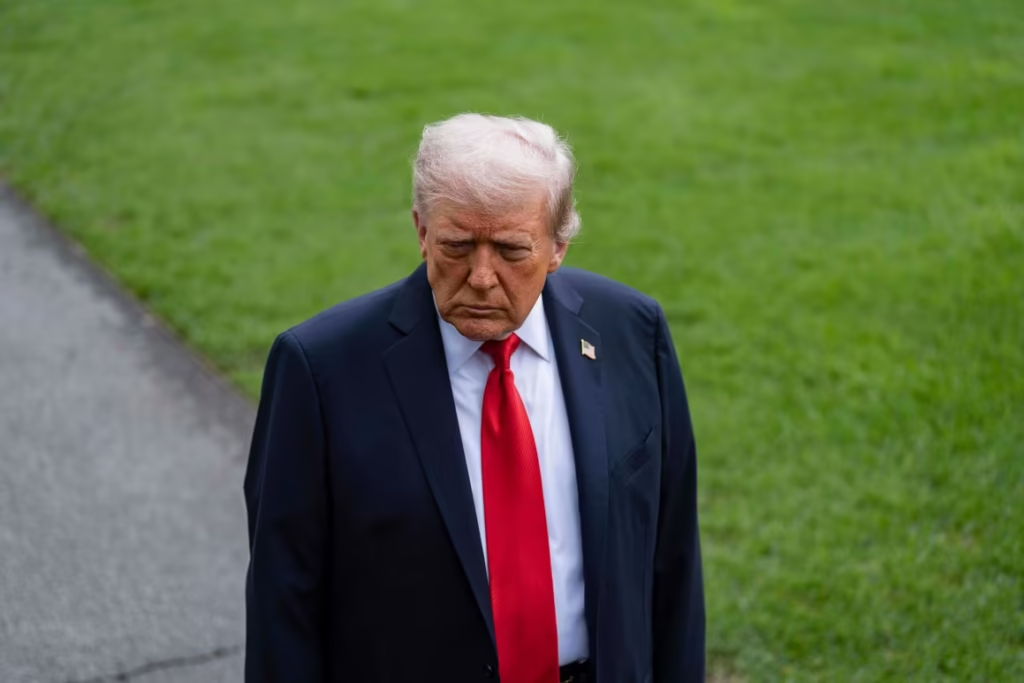President Donald Trump is once again at the center of controversy as his policies ripple through both domestic life and international markets. In Chicago, fears are growing among immigrant communities as Trump prepares to deploy National Guard troops and immigration enforcement teams ahead of Mexican Independence Day celebrations. What has traditionally been a vibrant display of culture and unity has now turned into a climate of uncertainty, with major events such as El Grito Chicago already canceled. Illinois Governor JB Pritzker has warned that the measures could turn what should be a joyful celebration into a moment of fear for thousands of families.
At the same time, America’s economic landscape is undergoing massive shifts under Trump’s trade policies. The administration has ended tariff exemptions for low cost foreign imports, leading to an extraordinary collapse in postal traffic entering the United States. The fall of more than eighty percent has disrupted businesses that rely on affordable international goods and left many small retailers scrambling to adapt.
The political spotlight has also turned toward Health Secretary Robert F Kennedy Jr, who is facing criticism from both lawmakers and public health officials. Concerns about his approach to vaccines and health policy have triggered calls for his removal, with even figures from Trump’s own political orbit urging the president to reconsider his appointment. Kennedy recently faced a tough round of Senate questioning as frustrations with his leadership mount.
Perhaps the most dramatic shift, however, comes from Trump’s aggressive tariff strategy. Under a sweeping new order, the administration has imposed a twenty five percent tariff on goods from any country that imports Venezuelan oil. This bold move has stunned analysts not only because it affects U.S. trade partners but also because it applies to America itself, as the United States continues to buy Venezuelan crude. These tariffs come on top of a broader campaign that has raised the average U.S. tariff rate from just over two percent to more than twenty seven percent in 2025. From steel and aluminum to semiconductors, autos, and pharmaceuticals, industries are bracing for the fallout as costs rise and trading partners prepare retaliatory measures.
For Trump’s supporters, these moves signal strength and determination to put American interests first. For critics, they raise alarms about isolation, economic turbulence, and heightened social division at home. With Chicago bracing for unrest, businesses reeling from sudden shifts in trade, and Washington locked in a bitter debate over RFK Jr’s role, Trump’s latest actions are shaping not just policy but the national mood. The weeks ahead may determine whether these strategies solidify his vision or trigger deeper instability both within the United States and across the global economy.


